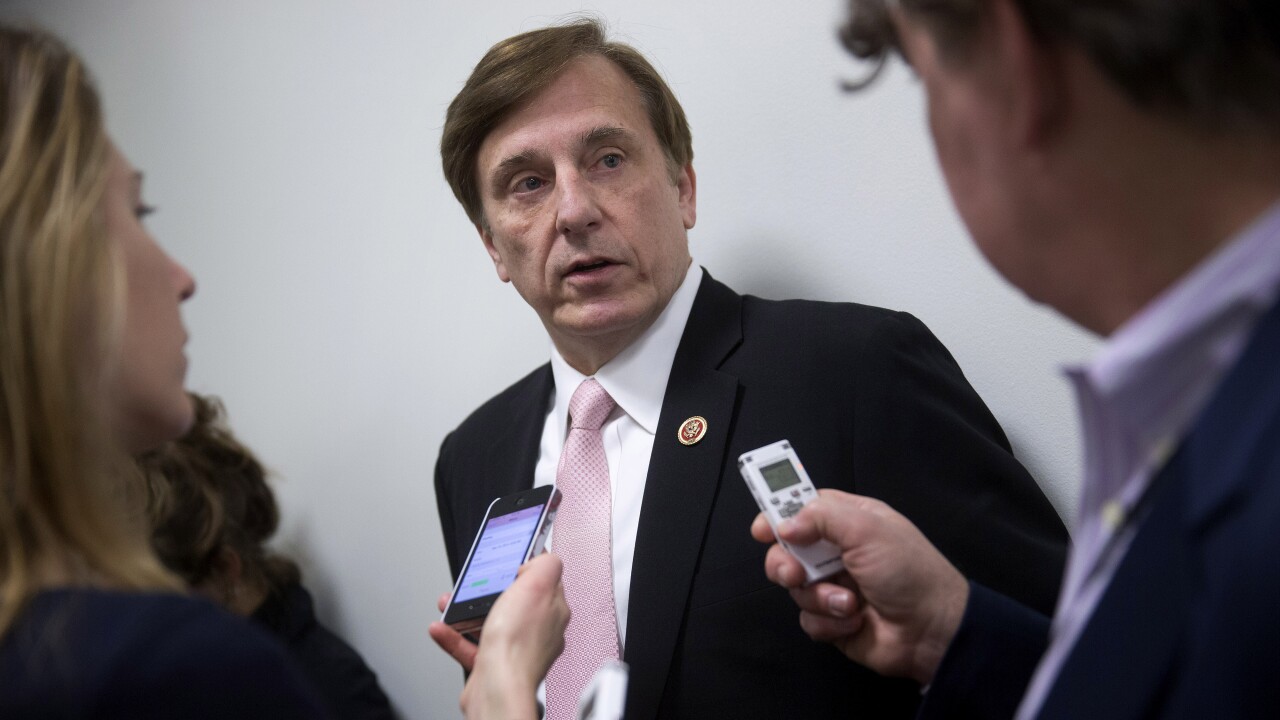
DALLAS — The House Transportation and Infrastructure Committee approved a passenger rail reform bill on Wednesday that requires Amtrak to seek private partners in station development projects.
Rail stations located in desirable downtown locations can be focal points for significant residential, commercial, and retail development, said Rep. Bill Shuster, R-Pa., who chairs the committee.
Amtrak owns a number of downtown train stations but leveraging their potential for real estate development has been a low priority for the rail operator, he said.
"By compelling Amtrak to operate more like a true business, cutting red tape, and opening the door to more private sector resources, we can make some long-overdue improvements to passenger rail transportation in the United States," Shuster said.
H.R. 749, the Passenger Rail Reform and Investment Act of 2015, would require officials of the National Railroad Passenger Corp. to report within a year of the bill's passage on ways to enhance development around Amtrak stations, including options for capturing development-related revenue streams. Amtrak would then have to issue requests for proposals from private partners on station development projects within the next six months.
Shuster said rail infrastructure projects have been delayed and development of the system has been hampered by current law that limits Amtrak's ability to partner with the private sector.
"Passenger rail has a role to play in our transportation network, but we've simply got to do it better," Shuster said.
The rail bill cuts Amtrak's authorized funding level in fiscal 2016 to $1.4 billion from the $1.9 billion annual appropriation in the current legislation. The annual allocation gradually increases over the bill's four-year frame to $1.46 billion in fiscal 2019.
The measure revamps the last rail reauthorization act approved in 2008. The committee adopted a similar bill last year that did not receive congressional approval.
This latest measure passed unanimously in the committee but with some Democratic reluctance. The proposal is sponsored by Shuster and rail subcommittee chairman Rep. Jeff Denham, R-Calif., along with the two ranking Democrats on the panel, Rep. Peter DeFazio, D-Ore., and Michael Capuano, D-Mass.
Rep. Jerrold Nadler, D-N.Y., said the capital improvement funding of $300 million a year, with $150 million dedicated to infrastructure projects in the Northeast Corridor, is far below what is needed.
"It's a good first step, it's only a first step, but it's time to take that first step," he said. "It's grossly inadequate, but it's the best we can hope for right now."
The bill passed without amendments, but only after Rep. John Mica, R-Fla., withdrew a proposal requiring the Transportation Department to seek private partners for a high-speed rail system along the Northeast Corridor from Washington, D.C., to Boston.
Mica's amendment called for an initial segment by a private operator guaranteeing a two-hour, one-stop trip between Washington and New York, followed by an extension of the system to Boston.
Amtrak would not be allowed to operate the fast rail project, Mica said.
Profits from the rapid rail system above a negotiated rate of return would be dedicated to rail infrastructure projects. Mica said the excess profits could total $500 million to $1 billion a year.
The private partner would be willing to put up $5 billion or more for the rail concession, he said, citing a University of Pennsylvania that put the cost of a Washington-New York high-speed rail link at $30 billion.
"People will invest in this," Mica said. "Even Russia has competition in its passenger rail system."
Mica said he would propose his amendment when the rail bill is debated in the House.





